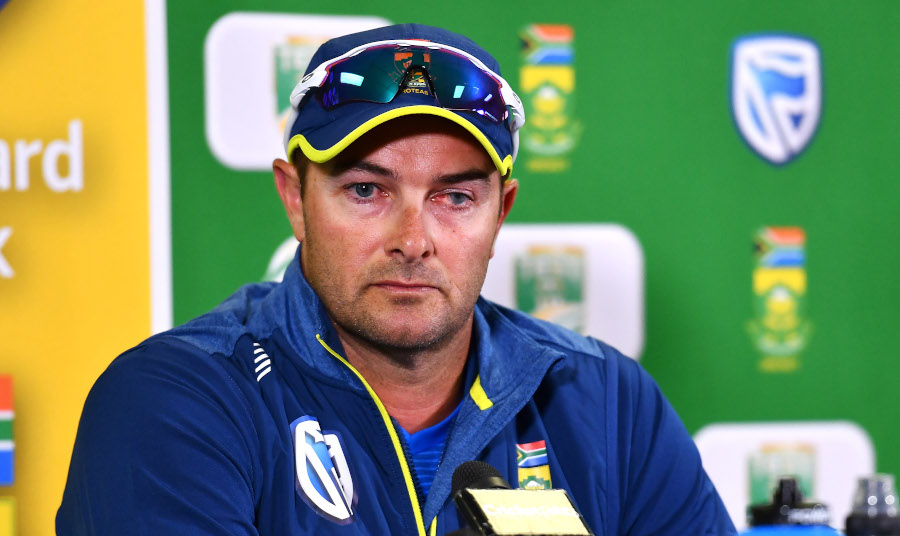Stories like the one Paul Adams shared about allegedly being called a “brown sh**” by current Proteas head coach Mark Boucher and other teammates is exactly what the Social Justice and Nation Building (SJN) hearings should be about, writes RYAN VREDE.
I wrote on Monday that the Cricket South Africa’s (CSA) Social Justice and Nation Building (SJN) hearings were meant to be a platform for those testifying to expose deep inequalities and incidents of racism or racial prejudice in cricket.
Instead, there’d been painfully little of that, and more subjective fluff that is derailing what was meant to be a noble and necessary process.
Things changed markedly with Adams’ testimony, during which the former Proteas spinner alleged several instances of racial discrimination, including being nicknamed “brown s**” by his teammates, Boucher among them, across his playing career.
“I was called brown sh** when I was playing. It often used to be a song when we won a game and we were in fines’ meetings. They would sing, ‘Brown sh** in the ring, tra la la la laa’,” Adams testified.
Adams said he didn’t experience it as racism at the time. “When you are playing for your country, when you have had that victory, you don’t make sense of it, you brush it off,” he explained.
A disconcerting number of whites have wondered out loud on social media why Adams didn’t say anything at the time, intimating that he is part of a present-day witch hunt against white players, former players and officials.
They either lack the understanding of the context, or wilfully ignore it.
Adams was a teenager, or at best in his early 20s, at the time of the incident. A man-child by any standard. He explained that he didn’t have the emotional intelligence to align an experience like his with racism. He was caught up in the emotion of living a dream and, based on his testimony, it is clear that he wasn’t prepared to compromise that dream by speaking up from a position of relative powerlessness.
It would likely be very different now, given that awareness around racism is heightened and tolerance for it greatly diminished, while blacks who are subjected to such racism have been more empowered to speak their truth.
If we agree that education creates awareness, which in turn informs one’s experience and guides one’s choices, then it is easier to understand why Adams let it slide at the time, but revisited it in his testimony this week.
The context here is also important insomuch as cricket was still largely a white boys’ club, marked by blinding privilege and devoid of much appreciation for the nuances of racism. I’d venture a confident guess that, at the time, Boucher and co considered this vile song a harmless part of the team’s culture.
I hope we hear from Boucher (and any others implicated), who has the right of reply at the hearings. He has three options. He could ignore the allegations, which seems unconscionable for the national team coach who has to work with black players. He could deny the allegations, which should spark a separate inquest because someone is telling a deeply defamatory lie. Or he could attend the hearings and concede that he played a role in the racist treatment of a teammate, explain why he did so and present a case as to why he isn’t that person any longer.
Adams hopes it’s the third option. He said as much when explaining his motivation for telling the story.
“I’m just highlighting that it should never happen and if we take this forward in the right way, we will have a lot more respect for each other,” he explained. “Maybe he [Boucher] should come and say sorry. Maybe that is all that needs to happen. It is something that should not be brushed under the carpet. We should air it, if we want our teams within Cricket SA to have the right ethics, the right mentality, the right respect for one another, we should air these things.”
These types of stories make the SJN extremely important. Hearing those implicated respond would make it extremely valuable to South African cricket at large, because, depending on the nature of the response, it would either help us establish the true depth of the problem, or help us heal.
Helping us heal is one of the primary objectives of these hearings. In the midst of a mess of irrelevant, subjective and personal agendas related to match-fixing charges from many of those testifying, stories like Adams’ provide opportunities for everyone to listen, understand and heal.







